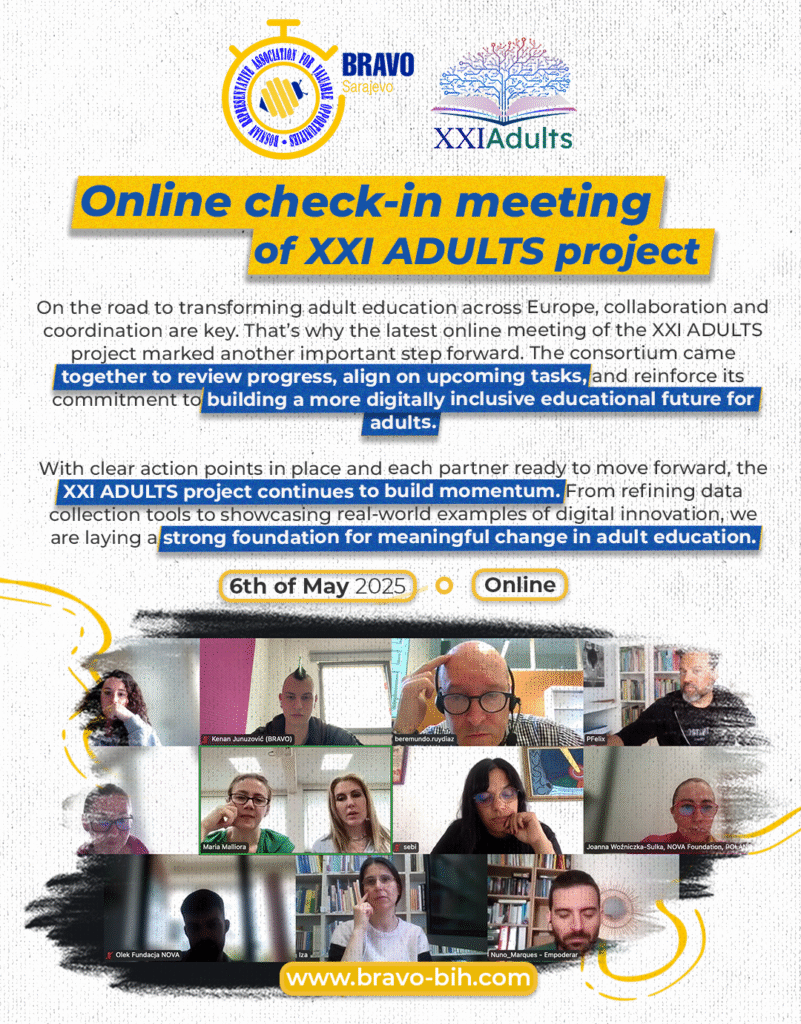
Collaboration and coordination are key to transforming adult education across Europe. That’s why the latest online meeting of the XXI ADULTS Erasmus+ project, held on May 6th, 2025, marked another important step forward. With representatives from Bosnia and Herzegovina, Spain, Greece, Poland, and Portugal, the consortium came together to review progress, align on upcoming tasks, and reinforce its commitment to building a more digitally inclusive educational future for adults.
Charting the Next Steps
The meeting opened with a project overview presented by the project coordinators, who reviewed the project timeline and highlighted the current phase of implementation. This served as a helpful reference point for all partners to understand ongoing responsibilities and upcoming deliverables.
One of the key topics was the design and expert validation of questionnaires targeted at teachers, managers, public administrators, and adult learners. Partners agreed to include three new questions per questionnaire to enrich the data collected.
Additionally, we discussed the collection of good practices in adult education, particularly those that support digital transformation.
Each partner will identify at least five innovative practices from their country, including examples from two reference centres that are open to collaboration. These findings will contribute to a comprehensive report outlining:
- The current state of adult education centres,
- Reliable strategies for improvement,
- And actionable, evidence-based recommendations for innovation.
As we move forward, dissemination remains a key focus, with IRM taking the lead in coordinating visibility efforts in May. Our shared to-do list includes finalizing the questionnaires, launching them via Google Forms, and gathering impactful case studies from across Europe.
Looking Ahead: From Planning to Impact
With clear action points in place and each partner ready to move forward, the XXI ADULTS project continues to build momentum. From refining data collection tools to showcasing real-world examples of digital innovation, we are laying a strong foundation for meaningful change in adult education.
The months ahead will be full of activity — finalizing the questionnaires, gathering good practices, and expanding the project’s reach through strategic dissemination. By working together, we’re not just responding to today’s challenges, we’re shaping tomorrow’s opportunities for adult learners across Europe. Stay connected with us as we continue this important work, and join us in redefining what it means to learn, teach, and grow in the 21st century!
